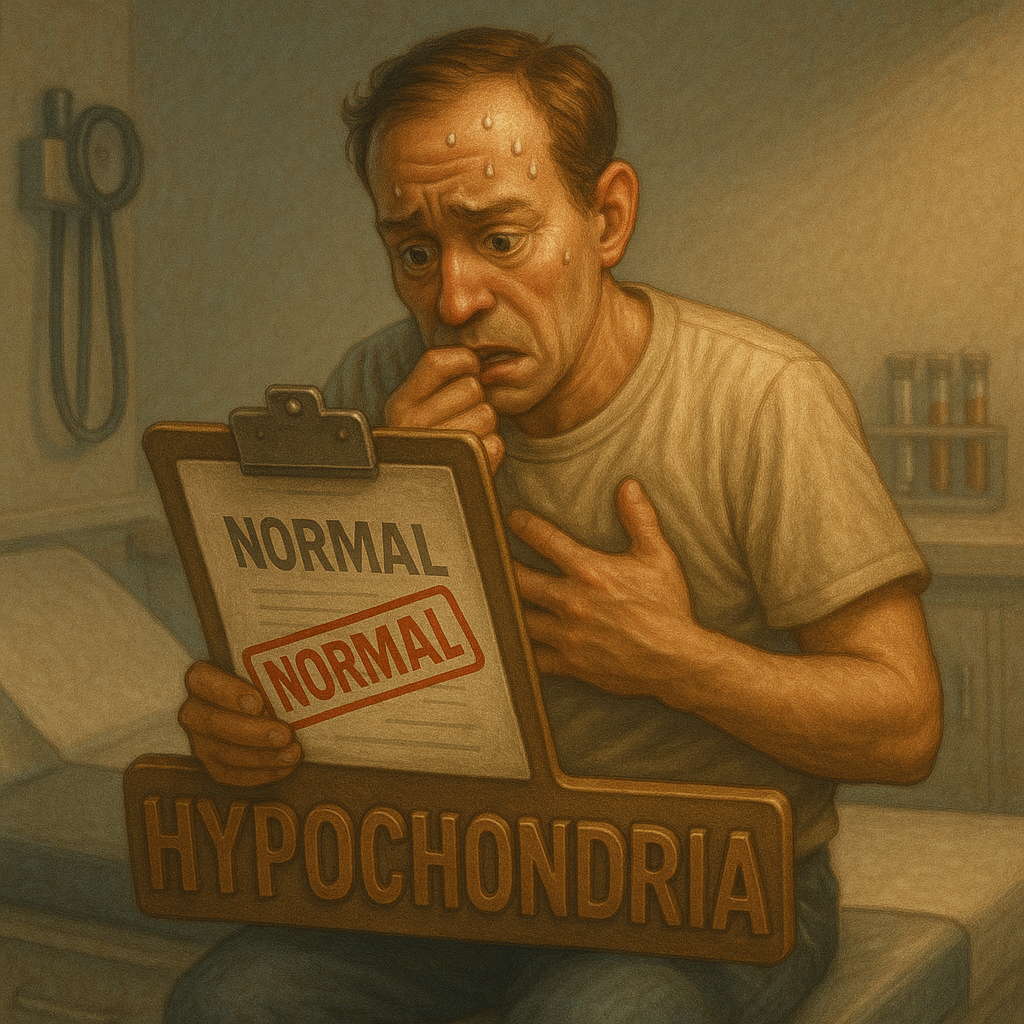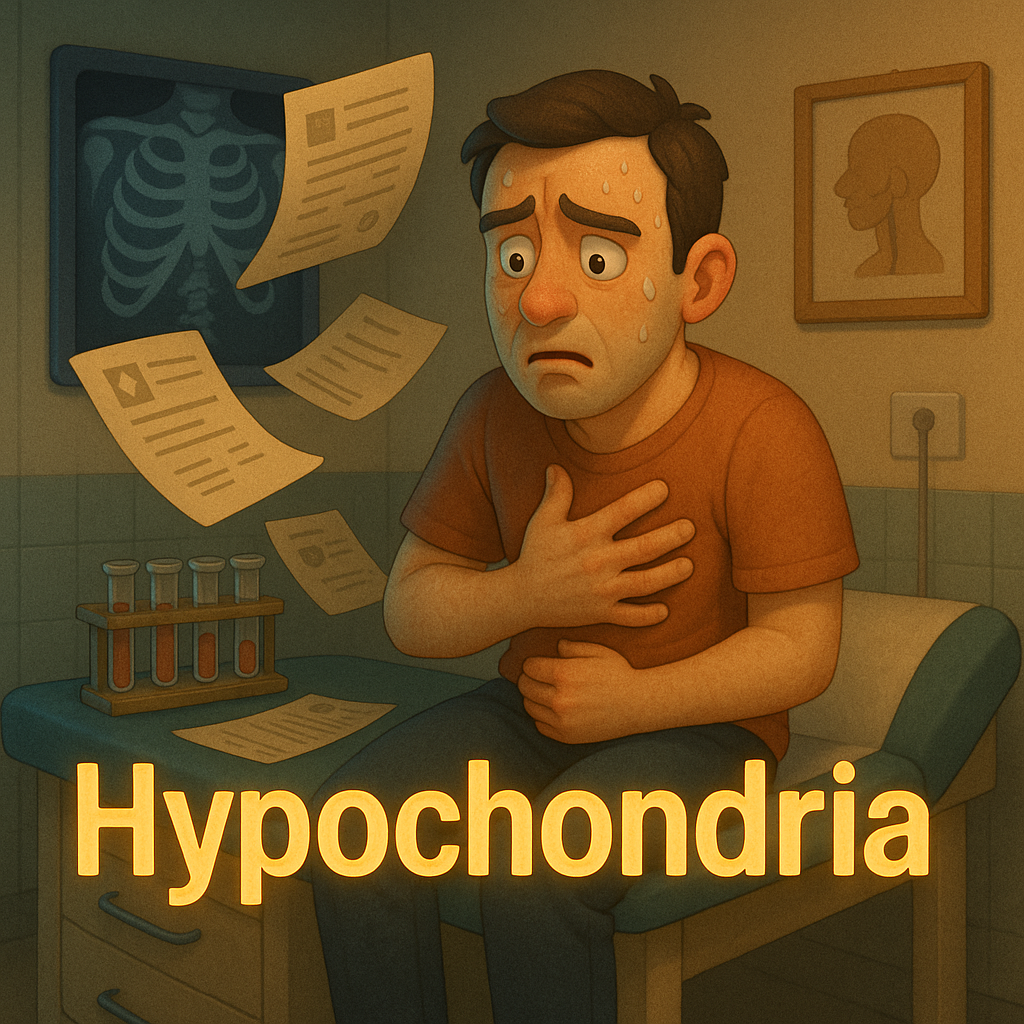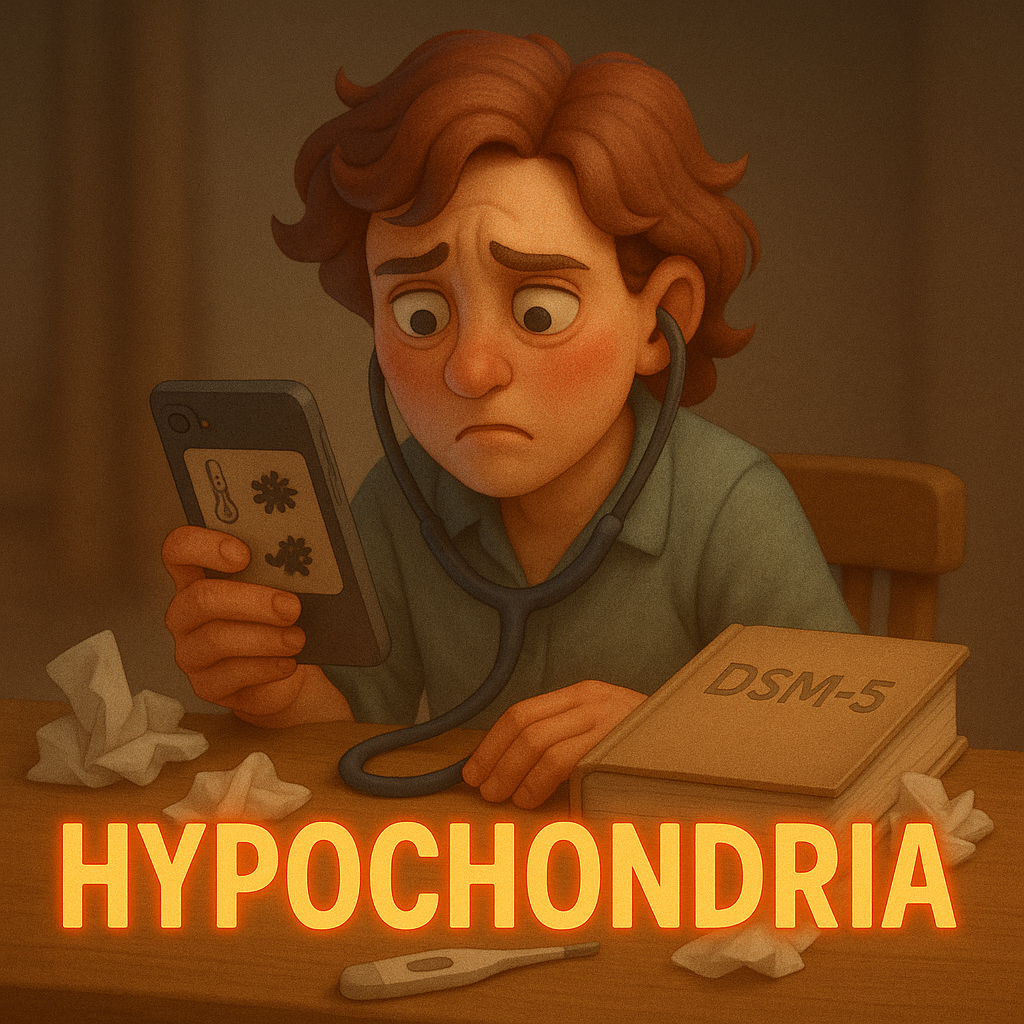Hypochondria
Definition
Hypochondria is a noun referring to excessive worry or preoccupation with the belief of having a serious illness, despite medical reassurance and absence of significant symptoms; it is now classified as illness anxiety disorder.
Parts of Speech
- Noun
Pronunciation
American English
- IPA: /ˌhaɪpəˌkɑːnˈdriːə/
- Respelling: hye-pə-kon-DREE-ə
British English
- IPA: /ˌhaɪpəˌkɒnˈdriːə/
- Respelling: hye-pə-kon-DREE-ə
Etymology
Mid 17th century: from French hypochondrie, from Medieval Latin hypochondria “the area beneath the cartilage of the ribs,” from Greek hypo- “beneath” + khondros “cartilage.”
Derivatives
- hypochondriac (noun/adjective)
- hypochondriacal (adjective)
- hypochondriasis (noun)
Synonyms
- health anxiety
- illness anxiety
- health obsession
Antonyms
- wellness confidence
- health assurance
Usage
The noun "hypochondria" is used in medical and psychological contexts to describe excessive worry about having serious disease despite normal findings. For example, "He suffers from hypochondria and schedules frequent doctor appointments," or "Her hypochondria persists even after negative test results."
Related Terms
- Illness anxiety disorder: The modern diagnostic term for health-related anxiety.
- Somatic symptom disorder: Excessive focus on physical symptoms.
- Anxiety: A condition of worry and fear.
- Obsessive thoughts: Repeated, intrusive ideas.
- Reassurance seeking: Frequent requests for medical tests or opinions.
Detailed Definitions
Noun
- Excessive fear of having a serious illness – persistent belief of disease despite medical evaluation.
- Example: "His hypochondria led him to undergo dozens of unnecessary tests."
- Outdated term for illness anxiety disorder – previously used in psychiatry to describe health anxiety.
- Example: "Hypochondria is now classified under illness anxiety disorder in the DSM-5."
hypochondria








